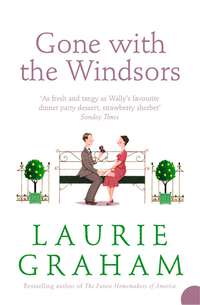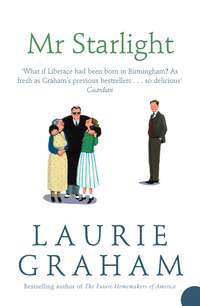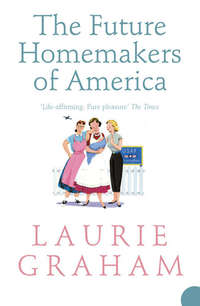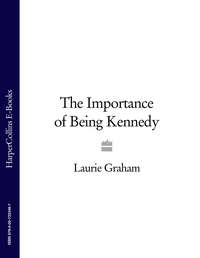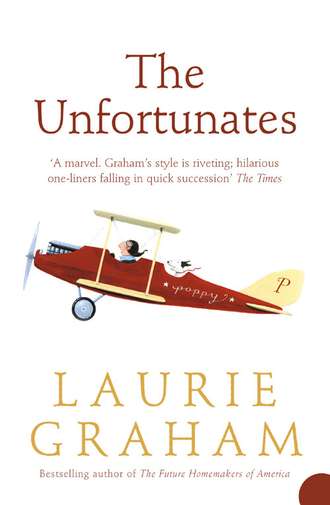
Полная версия
The Unfortunates
I had no idea where those words sprang from. Perhaps it was the thought of knitting wristlets.
As soon as Reilly was gone, I put on my cloth jacket and took the elevated railway all the way to Exchange Place. Uncle Israel was most surprised to see me, but not a bad kind of surprised.
‘Someone give you a bang on the head, Pops?’
Uncle Israel always deemed himself something of a humorist.
I said, ‘It’s a turban. I designed it myself. Uncle, I want to do some proper war work.’
I explained that our Irish had gone fruit-picking and Reilly was on her way to a munitions town and everyone in the world seemed to have something to do except me.
‘I guess you heard about your cousin Addie?’ he said. ‘I guess that’s what’s brought this on?’
I always loved my Uncle Israel but that day even he seemed condescending. I couldn’t endure any more. I banged my fist on his desk and he jumped a mile in the air.
‘Nothing has brought it on,’ I shouted, ‘except a war. A great big war where everyone else is doing good works and having fun but I’m not allowed. I’m a grown-up but I’m still obliged to stay home with Ma. It’s not fair!’
Simeon the secretary put his head round the door, ready to eject me I dare say or bring in a glass of restorative brandy, or place his skinny body between Uncle Israel and any physical danger. Uncle waved him away.
He was quiet for a moment, weighing up, I suppose, where his loyalties lay. I gave him a little help. I said, ‘Even Aunt Fish is doing a hundred different things so I’m sure it wouldn’t hurt for me to make myself useful.’
‘Pops,’ he said. ‘If you want to do your bit you won’t find me standing in your way. Not at all. Your Pa would have been proud.’
I said, ‘That’s what Ma said about the socks. But I’m through with knitting.’
‘Quite right,’ he said, ‘quite right. Well, I wonder what I can do to help?’
How banging on a person’s desk can make them change their tune.
I said, ‘I need you to ask someone. You know lots of people. Tell them I’m a very good worker and I’m available to start immediately. And I know French. And I’m not afraid of blood.’
I didn’t think I was afraid of blood.
Uncle Fish stood up and put on his top hat.
‘This calls for some thought,’ he said, ‘and thinking calls for lunch.’
So he offered me his arm, and Simeon stood back as I swept by him, in case of continuing fireworks. We went to Child’s restaurant for corned beef hash and fried eggs.
I asked about Cousin Addie. Cousin Addie, he told me, was quite the talk of Duluth. She had tried to join the marines, but when she realized all they were offering was work as a stenographer, she had used strong language to the recruiting sergeant and then gone directly to the bank to organize her own war work.
She had bought four large gasoline-powered vehicles for a mobile hospital and was having them shipped to France at her own expense. Better yet, she was going with them. I was hurt that Cousin Addie hadn’t thought to invite me along. Especially as I’d written her a letter and explained we were made of the same stuff. Her mobile hospital was going to have an operating theater, with its own lighting generator and a laundry and a disinfection unit, and it was all in trucks that could be driven to forward positions. Uncle Israel said she wouldn’t see change out of twelve thousand dollars.
I asked him if I had twelve thousand dollars.
‘Not yet,’ he said. ‘Have some peach pie. Girls like pie.’
But I was eager to be off to the Red Cross. It seemed to me that once they realized I was kin to Addie Minkel of Duluth I’d be on the next boat to France.
I said, ‘Uncle, how long would you say it might take a person to learn to drive a truck?’
‘Pops,’ he said, ‘I’m going to introduce you to Max Brickner’s wife at Surgical Dressings. I can’t be party to anything that might lead to getting shelled or sunk, so don’t ask me. As it is, I have the feeling I’m never going to hear the end of this from your Ma. And anything that incommodes Dora has a habit of turning right round and incommoding me.’
Red Cross headquarters was all comings and goings. Telephones rang, vehicles arrived and left, and Isabel Brickner’s hair had worked loose from its pins.
‘Of course I can use you,’ she said. ‘Why don’t you answer that telephone?’
I took a message about surgical scrubs while Mrs Brickner searched for shipment manifests and sent an avalanche of papers onto the floor. Uncle Israel looked on, smiling.
‘Looks like you could do with a filing clerk, Isabel,’ he said, ‘and Poppy’s a good little tidier-up.’
Mrs Brickner straightened up and looked at me.
I didn’t even allow her time to open her mouth.
‘No I’m not,’ I said. ‘I’m a hopeless tidier. But I’m strong and healthy and I want to do something for the boys at the front.’
‘Do you, Poppy?’ she said. ‘Then take off your coat, roll up your sleeves, and report to Room 19.’
And so I began the next stage of my war effort. I sat at a long table with a dozen other girls, rolling cotton bandages and singing songs.
Tramp, tramp, tramp, the boys are marching
I spy the Kaiser at the door
But we’ll get a lemon pie and squash it in his eye
Then there won’t be a Kaiser anymore
It was after five o’clock by the time I finished my turn at the Red Cross and boarded a trolley-car to go home and face Ma. The sun was still shining and I felt full of energy. Some of the girls said it was boring work but I thought it was the greatest fun. You were allowed to make coffee and talk, about anything at all, even beaux. And, anyway, I felt certain this was only the beginning.
As I had explained to the other girls, as a mustard heiress I would soon be coming into my fortune, and then I’d be able to buy a surgical flotilla like Cousin Addie and go to the Western Front and save lives. After I told them that they were much more welcoming. As soon as I walked into the room I’d see them smile. Hot Stuff, they called me, because of Minkel’s Mighty Fine Mustard.
I walked the last ten blocks, composing myself for Ma, and when I looked down 70th Street I could see camouflaged transports moving slowly down the Hudson toward the open sea. I was, I had decided, now effectively head of our household. Pa was gone, Honey had her own establishment, our help had all left us and Ma was advanced in years and enjoyed very poor health. I bounded up the front steps, ready to take on the world.
Ma didn’t answer when I called out, but I found her in the library, sitting in Pa’s old chair with a duster in her hand. It was the first time I had ever known her enter that room.
‘So many trinkets,’ she said. ‘I’m sure I don’t know why he was so particular about them.’
I said, ‘Ma, I have found a position with the Red Cross and I have to go there as often as I possibly can to do essential work, but I promise that I’ll take care of the dusting, and I’ll leave you a luncheon tray, and be home in time to make dinner for us. And if some day you are very indisposed, I might be spared from my work, just until Honey can come to sit with you, for we all have to make sacrifices you know.’
‘There will be no need for a luncheon tray,’ was her first response.
I said, ‘It came to me, after Reilly said she was needed for the munitions, that I had to volunteer, too. Uncle Israel took me along and they were so grateful to have me they begged me to start right away.’
‘How industrious you’ve been,’ Ma said. ‘And Israel, too. And how convenient, for it so happens I’ve decided to answer my country’s call, too. We shall both be modern working women, and in the evening we shall eat sandwiches.’
I said, ‘Ma, what ever kind of work can you do?’
It seemed most capricious of her to rise from her sick bed and become modern on the very day of my own triumph.
‘I shall make jam,’ she said. ‘I have joined,’ she announced, ‘the National Campaign for the Elimination of Waste. Let me see no more crusts left on the side of your plate, Poppy. Let me see no more cake toyed with, on account of dryness.’
I am sure I had never toyed with cake in my life.
Still, suddenly Ma and I had full and important lives. We talked all evening about household economies we might make as part of our war effort. I even steered our conversation round to the expedience of riding in public trolley-cars.
‘Only be sure to wear your gloves,’ Ma said, ‘and to wash your hands at the very first opportunity. Minnie Schwab rode on the elevated railway, you may remember, and immediately became ill with a hacking cough.’
‘What a pity,’ I crowed, ‘that Honey can manage nothing more demanding than her Widows and Orphans Bazaar.’
‘Now, Poppy,’ Ma said. ‘Honey doesn’t have your sturdiness. As long as she remembers to take her elixir, though, she manages very well. And she can hardly be reproached for finding wars difficult. She’s a married woman. She has a husband to fear for.’
But Harry was having an awfully good war. A patchy lung kept him away from any military engagements. His steel investments were doing well. Also his holdings in oil and rubber. He had bought a house in Palm Beach, Florida, and parcels of land bordering on three of Long Island’s most up-and-coming golf courses. He had even been elected to the Wall Street Racquet Club.
‘If he has any sense,’ Uncle Israel had said when he heard that news, ‘he’ll be polite enough not to insist on playing.’
We dined on sardines on toast and after dinner I tried to show Ma how to turn a heel. We had, after all, baskets full of yarn, and we were in a fever of thrift and industry. But I made an awkward teacher. Within an hour Ma had abandoned knitting and was thinking of embroidering handkerchiefs.
I said, ‘I think our boys may do well enough with plain ones. How can you be sure of embroidering the right initials?’
‘Why, I shall do a selection, of course,’ Ma said. ‘As long as my eyesight holds up.’
Emptied of staff our house seemed suddenly vast and vulnerable. With Reilly gone it now fell to me to protect the Minkel fortress and I was doing the rounds, securing all the doors and windows for the night, when I heard the telephone ring. It was the hour for Aunt Fish’s daily report on her committees.
I raced upstairs to take the call but arrived in the parlor to discover that Ma had picked up the hated gadget and answered it herself.
‘I am quite well, thank you Zillah,’ she said. ‘Answering the telephone is now part of my war work. To spare poor Poppy. She’s practically running the Red Cross bandage effort, you know? They had her there till half past four this afternoon and us without so much as an Irish. But we are determined to manage. One must do what one can for the duration. And I shall fill the solitary hours with needlework. I am embroidering for victory!’
ELEVEN
My new friends at the Red Cross took me for younger than twenty, especially as I didn’t have a beau as yet. As I explained to them, I hadn’t even had my debut, what with Pa’s passing and my being needed as a companion and helpmeet to Ma. I didn’t feel deprived. I remembered Honey’s debut. Her head had filled up with names of dance partners and designs of gowns, and ever after that she hadn’t been much company anymore. It had all cost a mountain of money and the result of it was she married Harry Glaser, so it seemed to me we hadn’t had such a good return on our investment.
Sometimes at the depot boy drivers passed our way, picking up consignments of dressings and hospital garments, and certain girls, like Junie Mack and Ethel Yeo, always called them in and made them laugh and blush. Of course, they were all boys who weren’t fit to fight so I wouldn’t have considered actually walking out with any of them, but they interested me nonetheless. Boys were an entirely new variety of person and I enjoyed learning about them.
Ethel and Junie liked boys who’d take them hootchy-kootchy dancing and buy them cocktail drinks. They liked to be squeezed, too, and kissed.
‘Hey, handsome,’ they’d call. ‘Are there any more at home like you?’
If Mrs Max Brickner was around or any of the older ladies, they kept their voices down. Otherwise we were a very jolly room, and I joined in with the laughter even if I didn’t always quite understand the joke. There was a blond boy with an eyepatch who was around for a while.
‘Hey, good-looking,’ Junie used to shout to him. ‘Have you met Hot Stuff, here? Her folks are big in mustard, but she sure could use a little sausage.’ And we all laughed when the boy turned pink.
‘Keep your eye out for her, anyway,’ she’d shout after him, and Ethel would scream.
Ethel and Junie taught me a lot of things. How to smoke a cigarette without choking and how to dance the tango. I didn’t accompany them to dance halls, of course, because after I finished my turn on bandages I had to hurry home to Ma, but just knowing about that side of life gave me more confidence.
I was even able to pass along to Honey advice Ethel had given me about avoiding the getting of a baby. Sherman Ulysses was now large and boisterous for his age and I felt sure she wouldn’t care to double her troubles.
‘After Harry squeezes you,’ I told her, ‘be sure to stand up directly and jump up and down and if possible douche thoroughly.’
‘Poppy!’ she said. ‘What kind of company are you keeping? You mustn’t talk about such things. Please don’t oblige me to speak to Ma about this.’
But Ma and I were now great allies. The only time we spent together was in the evening, by which time we were too tired for warfare of a personal nature. Ma would report from the vegetable canning front and I would give her selected anecdotes from surgical dressings. Of my tea-break tango lessons I said nothing.
‘Ethel Yeo?’ she’d ponder. ‘Yeo. Where did you say her people are from?’
‘All that is a thing of the past,’ I’d explain to her. ‘No one cares what your name is or where you came from, just as long as you’re doing your share. Everything’s changing, Ma.’
‘Oh dear,’ she’d say. ‘I do hope it doesn’t change too much.’
But she herself was continuing to change. One of the Misses Stone had explained to her about war bonds, and she had made a decision to invest without consulting either Harry or Uncle Israel.
‘I’ll only be lending the money, Poppy,’ she said. ‘It’s to feed a soldier and help beat back the Hun. And it will repay me at three and a half percent guaranteed, tax free.’
Aunt Fish was shocked until she learned that no less a person than the prudent Miss Yetta Landau had herself invested fifty thousand dollars in Liberty Bonds.
‘One’s money is quite safe,’ Aunt Fish allowed, ‘and as Yetta rightly says, better we fill the war chest this way or we shall be taxed and taxed until we are wrung dry. Dora, I should very much like you to know Yetta. Perhaps the B’nai Brith Charity Bazaar would be the time for you to meet.’
Ma pleaded pressure of Comfort Packet handkerchiefs to embroider, but Aunt Fish would have none of it.
‘It will take you out of yourself,’ she insisted. ‘A person can be too much in their own company. Solitary needlework can leave one prey to thoughts.’
‘Very well,’ Ma said, amazing us with her decisiveness. ‘I’ll be happy to attend your bazaar. But have no fears, Zillah. I have never been prey to thoughts. What about Poppy? Is she invited?’
‘Poppy may come, too,’ Aunt Fish said, looking at me menacingly over Ma’s head, ‘though I’m sure she must have a hundred other things she would sooner do.’
It was all the same to me. Whatever my aunt’s reasons for not wanting me along, they were nothing to the benefits of staying home alone. I could try out, in a looking-glass, the effect of shortening my skirts. I could dance a silent tango and imagine what it might be to be squeezed by a man. I could so load a slice of bread with jam that it would take two hands to lift it to my mouth.
‘How soon is the bazaar?’ I asked. ‘How charming for Ma to have an event to look forward to.’
Aunt Fish continued to eye me. ‘Whatever you are up to,’ her look said, ‘you don’t fool me.’
‘Likewise, I’m sure,’ I shot back to her, without a word being spoken.
‘Yetta Landau has raised single-handed the money for two ice machines to be sent to the front,’ Ma hurried to tell me upon her return. ‘Few people realize how essential ice is for the field hospitals, or would think it worth their attention, but she cares nothing about the popularity of her causes. Indeed the less they are known, the harder she works at them. And then there are her family responsibilities. It is no exaggeration to say she has raised her sister’s family as if it were her own. How many aunts would do as much as Dear Yetta has done?’
Miss Landau had become Dear Yetta on the strength of two hours’ acquaintance. Not only had Ma freshened up her gray lawn and attended the B’nai Brith Sisterhood Combined War Charities Craft Bazaar, but she had also circulated. Cards had been exchanged, some from as far afield as East 92nd Street, and visits were presaged. Visits appropriate to a period of national austerity, of course.
I heard the door creaking open on Ma’s narrow life and I was glad. The pace of her days quickened and filled with Thrift Drive rallies and fund-raising teas. Weeks passed without our boys receiving monogrammed handkerchiefs or any vegetables getting canned. And when I came home from bandage rolling she was no longer inclined to listen to my news. She wanted me to listen to hers.
Yetta Landau was sister-in-law to Judah Jacoby, and Mr Jacoby had been ten years a widower, left with two sons to raise.
‘It was Oscar’s bar mitzvah,’ Ma started on the first of many tellings of the story. Oscar was the elder Jacoby son. I had no idea what a bar mitzvah was.
‘It’s a special kind of birthday,’ Ma said, hurrying on.
‘How special?’ I asked. Since Pa’s death my own birthdays had become the occasion of muted, utilitarian giving.
‘Special for boys,’ she said. ‘Now, please don’t interrupt. Mrs Jacoby had not been feeling well but no one suspected she was mortally ill. It was only when she was missed during dinner and found collapsed in her boudoir that the gravity of the situation was realized. By the time she was seen at St Luke’s Hospital it was too late. She had suffered a fatal torsion of the insides.’
Ma refused to tell me how they knew what had killed her if it was inside, or to explain why boys had special birthdays. Only that Oscar Jacoby was now twenty-three years old and had just completed basic training at Camp Funston.
I asked Honey if she knew about bar mitzvahs.
‘It’s a Jewish thing,’ she said. ‘They have to go to the temple and read an old scroll and then they get gifts and money and a dinner.’
I asked her how she knew.
‘Because Harry did it,’ she said. ‘But Sherman Ulysses won’t. We’ve progressed beyond that.’
Giving up dinners and gifts didn’t sound like progress to me.
I said, ‘Is Harry Jewish then?’
‘Poppy!’ she said. ‘What kind of a question is that?’
I had no idea whether it was a stupid question or merely an embarrassing one, so I took it to a person who already knew the extent of my stupidity and lack of savoir faire. I left home an hour earlier than usual and stayed on the trolley-car as far as Uncle Israel’s office.
‘Don’t tell me the Red Cross have run out of work for you,’ he said when he saw me. Simeon had left Uncle’s door open when he showed me in and was hovering just outside, remembering my earlier show of spirit, no doubt.
‘No,’ I said, ‘but I have something to ask you and if you don’t mind I prefer not to do it with that person eavesdropping.’
‘Pops!’ he said. ‘Simeon is my right-hand man.’
Still, he sent him away and closed the door.
‘Now,’ he said, ‘what is it? Are you sure I’m the person to ask? Mightn’t Honey be more suitable? Or your aunt?’
‘Uncle Israel,’ I began, ‘I want to know if Harry Glaser Grace is Jewish.’
‘Ah,’ he said. ‘I see. Well, I suppose it all depends what you mean by …’
‘I don’t know what I mean by it,’ I said. There was a little tremor of frustration in my voice. ‘I’m not even sure what Jewish is.’
He lit a cigarette.
‘Let me see,’ he said. ‘Shall we begin with Moses? No. Let’s begin with Abraham.’
So my uncle told me a story about people who lived in tents and sacrificed sheep and listened to the Word of God. It was a rather long story. By the time he mentioned the Free Synagogue on West 68th Street the urgency had gone out of my question. Harry had many faults but I was certain he’d be too scared to sacrifice a sheep.
I said, ‘Honey says Oscar Jacoby had a bar mitzvah party because he’s Jewish?’
‘Yes,’ Uncle Israel replied.
‘And Honey says Harry had one too. Does that mean he used to be Jewish?’
‘Yes,’ he said.
‘So you can stop being Jewish? Like biting your nails?’
‘Yes and no,’ he said, and got up and walked around behind his desk. I suppose he knew what was coming next.
‘Are we Jewish?’ I whispered. ‘Am I?’
I suppose I had actually worked out the answer already.
Uncle Israel weighed something invisible, first in one hand, then in the other, then sighed deeply.
‘In a manner of speaking,’ he said. ‘But it’s really not a thing to get bothered about. These days …’
I said, ‘Oh I’m not bothered about it. Do you know, I always thought it would be nice to be something, apart from just an heiress. Like Junie Mack is Scotch and Mrs Lesser’s kitchen maid was albino. And now it turns out I am something. What fun.’
‘Well,’ he said, ‘my advice is not to make too much of this. No need to make, what shall we say … a feature of it. One needs to rub along in society. And in business. There are degrees of Jewishness. Yes. It’s really a question of degree. How are the bandages going?’
‘Very well,’ I told him. ‘It does me very nicely until I come into my money and can buy a hospital to take to Flanders.’
Something occurred to me.
I said, ‘Is Cousin Addie Jewish too? I suppose she must be.’
‘Yes,’ he said, ‘I suppose she must.’
I gave Uncle Israel a most affectionate kiss.
‘Thank you so much,’ I said. ‘I knew you were the person to ask.’
‘Pops,’ he said, as I was leaving. ‘Another word of advice. I wouldn’t trouble your Ma with this Jewish business.’
‘Why?’ I said. ‘Doesn’t she know?’
TWELVE
Uncle Israel need not have worried about Ma. She knew all about our Jewishness but had simply never gotten around to discussing it.
‘It wasn’t the fashion,’ she said. ‘And one was always so busy. Running a house. Raising one’s children to be good Americans. Your Pa and I were agreed that those were the important things.’
I said, ‘So you’re not vexed at my mentioning it?’
‘Not at all,’ she said. ‘Indeed I was only saying to Dear Yetta, when this war is over and we are not all so occupied I should very much like to attend Temple Emanu-El. They say the chandeliers are quite exquisite.’
Yetta Landau and her adopted family now featured as much in Ma’s conversation as they did in Aunt Fish’s. As far as I was aware neither my mother nor my aunt had ever met Mr Jacoby and his sons, but they were discussed with proprietorial familiarity.
‘How Murray must miss his brother now he is gone for a soldier,’ Ma would observe.
‘Oscar will break hearts,’ Aunt Fish would predict, ‘with his father’s looks and his aunt’s sweet manner.’
I cannot say for sure which occurred first; the idea that the sweet and handsome Oscar Jacoby might be the one destined to give me my first squeeze, or the suspicion that Ma and Aunt Fish were hatching a scheme. I only know it began to happen that whenever I walked into the parlor their excited voices would fall silent. Also, that I revealed Oscar’s name to my friends in bandaging.


